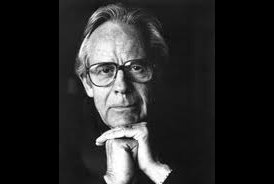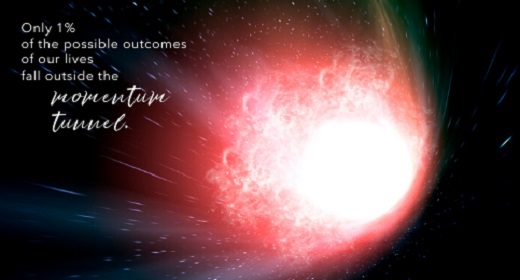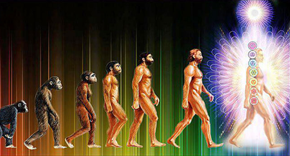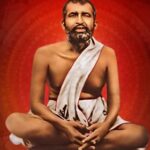Rollo May (April 21, 1909 – October 22, 1994) was an American existential psychologist. He authored the influential book (one of my personal favorites) entitled, Love and Will in 1969.
 Although he is often associated with humanistic psychology, he differs from other humanistic psychologists such as Abraham Maslow and Carl Rogers in emphasizing the tragic dimensions of human existence. Unlike them, he built his thinking around the tenets of existentialist philosophy.
Although he is often associated with humanistic psychology, he differs from other humanistic psychologists such as Abraham Maslow and Carl Rogers in emphasizing the tragic dimensions of human existence. Unlike them, he built his thinking around the tenets of existentialist philosophy.
Much of his thinking can be understood by reading about existentialism in general. Nevertheless, he is a little off of the mainstream in that he was more influenced by American humanism than the Europeans, and more interested in reconciling existential psychology with other approaches, especially Freud’s.
Biography
May was born in Ada, Ohio in 1909. He experienced a difficult childhood, with his parents divorcing and his sister suffering a mental breakdown.
His educational career took him to Michigan State College majoring in English and Oberlin College for a bachelor’s degree, teaching for a time in Greece, to Union Theological Seminary for a BD in 1938, and finally to Teachers College, Columbia University for a PhD in clinical psychology in 1949.
May’s Work
May uses some traditional existential terms in a slightly different fashion than others, and he invents new words for traditional existentialist concepts.
Destiny, for example, could be “thrownness” combined with “fallenness” – the part of our lives that is determined for us, for the purpose of creating our lives.
He also used the word “courage” to signify authenticity in facing one’s anxiety and rising above it.
“Stages” of Development
Innocence – the pre-egoic, pre-self-conscious stage of the infant. The innocent is only doing what he or she must do. However, an innocent does have a degree of will in the sense of a drive to fulfill needs.
Rebellion – the rebellious person wants freedom, but has yet no full understanding of the responsibility that goes with it.
Decision – the person is in a transition stage in their life where they need to break away from their parents and settle into the ordinary stage. In this stage they must decide what path their life will take, along with fulfilling rebellious needs from the rebellious stage.
Ordinary – the normal adult ego learned responsibility, but finds it too demanding, and so seeks refuge in conformity and traditional values.
Creative – the authentic adult, the existential stage, beyond ego and self-actualizing. This is the person who, accepting destiny, faces anxiety with courage.
May perceived the sexual revolution of the 1960s and 1970s, as well as commercialization of sex and pornography, as having influenced society and planted the idea in the minds of adults that love and sex are no longer directly associated.
According to May, emotion has become separated from reason, making it socially acceptable to seek sexual relationships and avoid the natural drive to relate to another person and create new life.
May believed the awakening of sexual freedoms can lead modern society to dodge awakenings at higher levels. May suggests that the only way to turn around the cynical ideas that characterize our generation is to rediscover the importance of caring for another, which May describes as the opposite of apathy.
Definition of Anxiety
His first book, The Meaning of Anxiety, was based on his doctoral dissertation, which in turn was based on his reading of the 19th century philosopher Soren Kierkegaard.
His definition of anxiety is “the apprehension cued off by a threat to some value which the individual holds essential to his existence as a self” (1967, p. 72).
He also quotes Kierkegaard: “Anxiety is the dizziness of freedom”.
Love and Will
Many of May’s unique ideas can be found in the book I consider his best, Love and Will. In his efforts at reconciling Freud and the existentialists, he turns his attention to motivation. His basic motivational construct is the daimonic. The daimonic is the entire system of motives, different for each individual. It is composed of a collection of specific motives called daimons.
Basically, he says, a daimon is anything that can take over the person, a situation he refers to as daimonic possession. It is then, when the balance among daimons is disrupted, that they should be considered “evil”.
For May, one of the most important daimons is eros. Eros is love (not sex), and in Greek mythology was a minor god pictured as a young man. Later, Eros would be transformed into that annoying little pest, Cupid. May understood love as the need we have to “become one” with another person, and refers to an ancient Greek story by Aristophanes. When we became a little too prideful, the gods split us in two, male and female, and cursed us with the never-ending desire to recover our missing half!
“Like any daimon, eros is a good thing until it takes over the personality,
until we become obsessed with it.”
Another important concept for May is will: The ability to organize oneself in order to achieve one’s goals. This makes will roughly synonymous with ego and reality-testing, but with its own store of energy, as in ego psychology. May hints that will, too, is a daimon that can potentially take over the person.
Another definition of will is “the ability to make wishes come true.” Wishes are “playful imaginings of possibilities,” and are manifestations of our daimons. Many wishes, of course, come from eros. But they require will to make them happen!
Hence, we can see three “personality types” coming out of our relative supply, you might say, of our wishes for love and the will to realize them.
May says we have to create our own values, each of us individually. This, of course, is difficult to say the least. So we need help, not forced on us, but “offered up” for us to use as we will.
Wise words to live by!








































